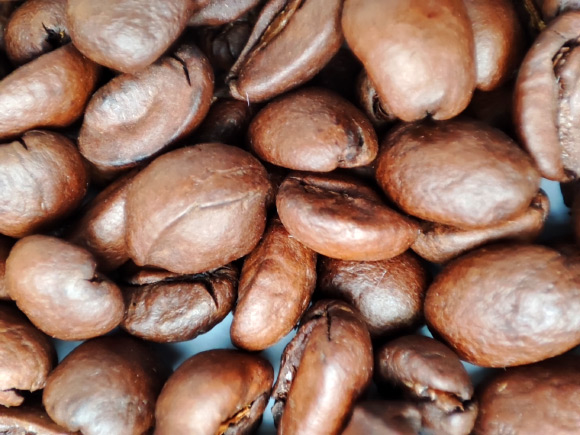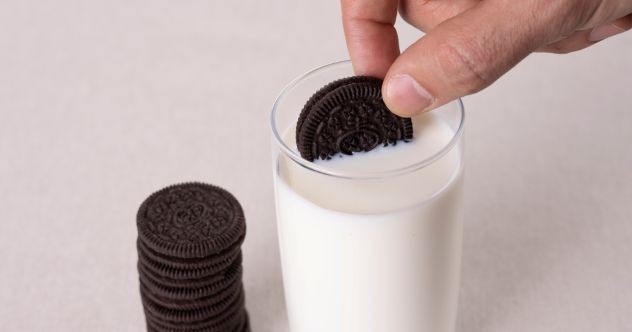In a new study led by scientists from Harvard T.H. Chan School of Public Health, caffeine and regular coffee intake in midlife were modestly and favorably associated with healthy aging and all its domains among women; however, no associations were observed with tea or decaffeinated coffee, whereas higher cola intake was associated with reduced likelihood of healthy aging and all its domains.
Mahdavi et al. aimed to investigate the association between caffeine intake in midlife and the likelihood of healthy aging in women in older adulthood in participants in the Nurses’ Health Study. Image credit: Sci.News.
“While past studies have linked coffee to individual health outcomes, our study is the first to assess coffee’s impact across multiple domains of aging over three decades,” said Dr. Sara Mahdavi, a researcher at Harvard T.H. Chan School of Public Health and the University of Toronto.
“The findings suggest that caffeinated coffee — not tea or decaf — may uniquely support aging trajectories that preserve both mental and physical function.”
“Our study has several key strengths. In addition to the large sample size and 30 years of follow-up, we assessed several different aspects of longevity and healthy aging as well as very comprehensive information on nutritional and lifestyle habits that were collected every four years after the initiation of the study.”
The study included a total of 47,513 women from the Nurses’ Health Study with dietary and health data collected since 1984.
The researchers assessed caffeine intake using validated food frequency questionnaires that included consumption of top contributors of caffeine such as coffee, tea, cola and decaffeinated coffee.
Healthy aging was defined as living to age 70 or older, being free from 11 major chronic diseases, maintaining physical function, having good mental health, exhibiting no cognitive impairment and showing no memory complaints.
After 30 years of follow-up, the investigators estimated how the likelihood of healthy aging changed for every 80 mg of caffeine that study participants consumed per day.
They also examined specific drinks like coffee, tea, decaffeinated coffee (per 8-ounce cup) and cola (per 12-ounce glass).
These preliminary analyses accounted for other factors that might influence healthy aging such as body weight, smoking, alcohol use, physical activity, education level and protein in the diet.
By 2016, 3,706 of the women in the study met all the requirements for being considered healthy agers.
In mid-life, ages 45-60, these women typically consumed an average of 315 mg of caffeine per day — roughly the amount in three small cups of coffee or one and a half large cups by today’s standards.
More than 80% of that caffeine came from regular coffee consumption.
For women in the healthy agers group, each extra cup of coffee per day was tied to a 2% to 5% higher chance of doing well later in life, up to five small cups per day, or about 2.5 cups according to today’s measures.
The scientists did not find any significant association between drinking decaffeinated coffee or tea with an increased likelihood of healthy aging.
Importantly, each additional small glass of soda — another major source of caffeine — was associated with a 20% to 26% lower likelihood of healthy aging, reinforcing that not all sources of caffeine confer benefits.
“These results, while preliminary, suggest that small, consistent habits can shape long-term health,” Dr. Mahdavi said.
“Moderate coffee intake may offer some protective benefits when combined with other healthy behaviors such as regular exercise, a healthy diet and avoiding smoking.”
“While this study adds to prior evidence suggesting coffee intake may be linked with healthy aging, the benefits from coffee are relatively modest compared to the impact of overall healthy lifestyle habits and warrant further investigation.”
The authors presented their findings on June 2 at NUTRITION 2025, the flagship annual meeting of the American Society for Nutrition.
_____
Sara Mahdavi et al. Caffeine Intake and Healthy Aging in Women. NUTRITION 2025, abstract # P22-039-25

























